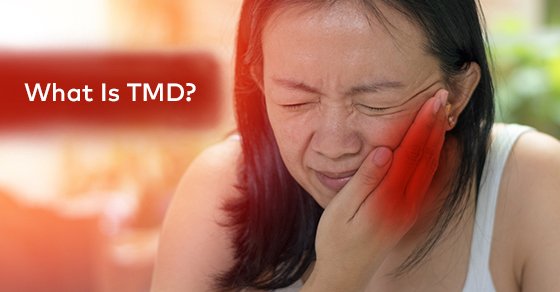Temporomandibular disorders (TMD) are a result of jaw problems, such as temporomandibular joint disorders (TMJ).
The hinge that connects your jaw to your skull is referred to as the temporomandibular joint. This is the joint that allows us to eat, talk, yawn and move our jaw however we please. TMD refers to any pain or problems with the jaw’s temporomandibular joint.
While it isn’t always clear what causes TMD, there are many symptoms that dentists include to as being related to TMD. A restricted movement that makes it difficult to eat and speak could very well be considered as TMD and in these cases, it’s important to seek medical attention.
TMD isn’t deadly, but it is uncomfortable and burdensome.
TMD Symptoms
Common among 20 to 40 years old, and even more commonly found in females, TMD has numerous symptoms that everyone should be aware of.
- The jaw gets stuck as you try to open or close your mouth. The jaw almost locks into place.
- Pain and tenderness around the jaw area, especially while talking or chewing.
- Chewing becomes difficult since the upper teeth and lower teeth no longer align.
- Your jaw feels overworked and exhausted.
- Toothaches and headaches become frequent.
- Your face is swollen.
- Your jaw makes popping and grinding sounds.
- You can’t open your mouth up wide.
- You may experience earaches and dulled hearing.
- Dizziness and ringing in the ears might occur.
What Causes TMD?
While an exact cause for TMD has been undetermined, there are many ways in which you might get the disorder. Dentists basically put all temporomandibular joint disorders and jaw problems in the category of TMD. Below, are some of the factors believed to cause TMD.
- A hard blow to the jaw or head
- Whiplash
- Arthritis
- Stress
- Extreme pressure on the teeth caused by clenching and grinding
- Damage to the ball and socket
- Movement of the disc between the ball and socket
TMD can be painful and quite stressful. It is crucial that you see a professional for treatment.
The soreness of the jaw can be minimized with pain medication, and a dentist will have several options to help treat and cure TMD.
Medication, splints, bridges, braces, and other forms of dental work can be done to help get rid of the condition. Luckily, TMD hardly ever becomes serious and can be effectively treated.
